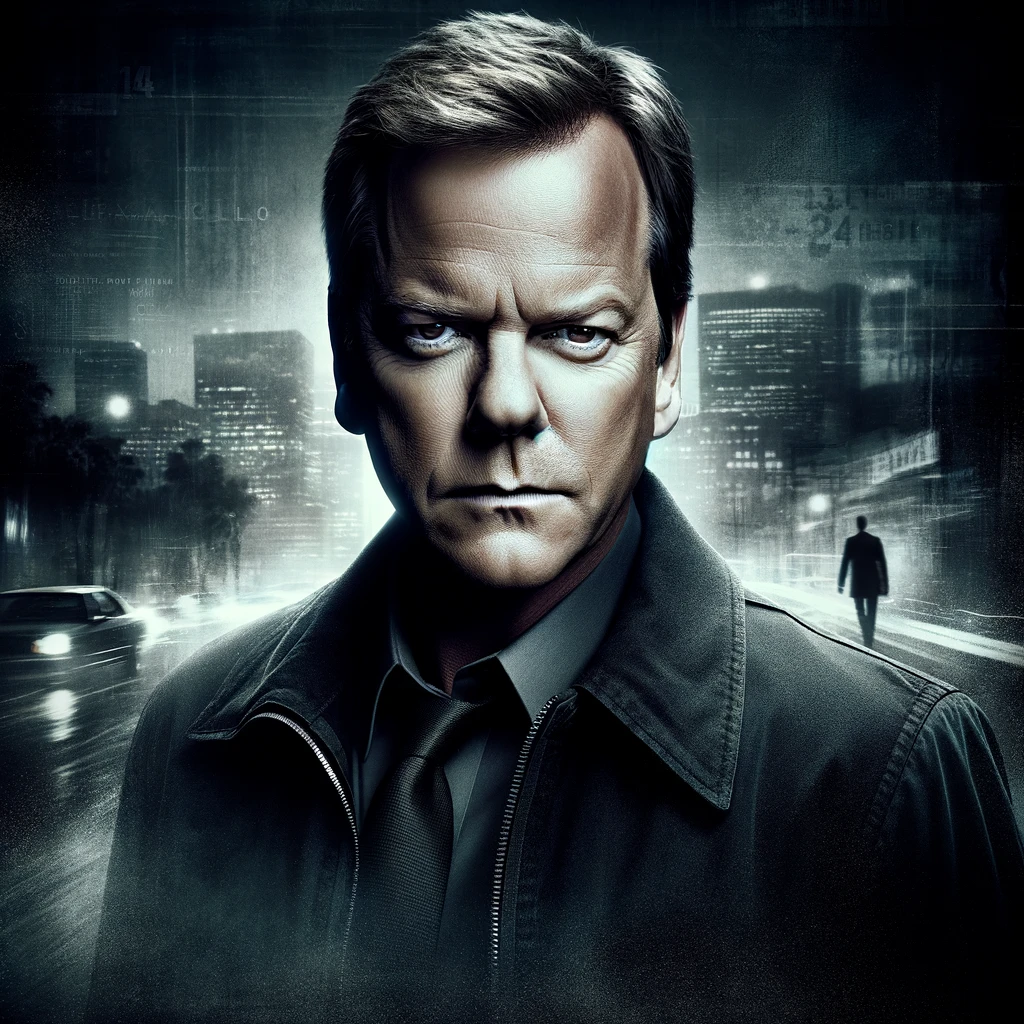
“24” is a groundbreaking American television series that premiered on Fox in November 2001 and ran for eight seasons until 2010. The show was created by Joel Surnow and Robert Cochran and stars Kiefer Sutherland as Jack Bauer, a character that has become iconic in the landscape of television heroes. The series also spawned a feature film, “24: Redemption,” and a limited series revival, “24: Live Another Day,” in 2014.
The innovative premise of “24” is centered around the concept of real-time narration, with each 24-episode season covering 24 hours in the life of Bauer, who is a Counter Terrorist Unit (CTU) agent. Each episode represents one hour of the day, and the events unfold in real time, including the commercial breaks. This unique format created an unprecedented level of suspense and urgency, fundamentally altering how stories could be told in the medium of television.
Kiefer Sutherland’s portrayal of Jack Bauer is a significant aspect of the show’s success. Bauer is depicted as a complex hero, dedicated to thwarting terrorism and protecting national security at all costs, often finding himself in morally grey areas. His fierce dedication and willingness to do whatever it takes, including torturing suspects and sacrificing his personal life, make him a compelling but controversial figure. Sutherland’s intense performance brought depth and nuance to the role, earning him critical acclaim, including an Emmy Award for Outstanding Lead Actor in a Drama Series.
The narrative of “24” explores various themes related to government, morality, and the personal cost of fighting terrorism. The show does not shy away from depicting the darker sides of national security, including corruption within the U.S. government and the physical and psychological toll on those who guard it. Each season typically begins with a primary threat—such as an assassination plot or a bio-terror attack—which leads to larger and more complex plots involving deep state elements and moral dilemmas about the balance between civil liberties and national security.
“24” also received praise for its high production values and its ability to maintain tension and pace throughout each season. The show’s format required a tightly written script, and the real-time element meant that the narrative had to be meticulously planned from the outset. The series’ use of split screens and countdown timers during episodes became signature elements, heightening the dramatic stakes and keeping viewers on the edge of their seats.
The impact of “24” extended beyond its innovative format and compelling lead performance. It was one of the first post-9/11 television shows that directly addressed the fears and ethical questions surrounding terrorism and national security. The series both reflected and influenced public perceptions of counterterrorism efforts, presenting a kind of wish fulfillment where one man could make a significant difference in the fight against global threats. However, this portrayal also led to debates about its influence on real-life national security policies, particularly concerning the normalization of torture.
The supporting characters and performances in “24” also contributed to its success. Notable characters include CTU agents Tony Almeida (played by Carlos Bernard), Chloe O’Brian (played by Mary Lynn Rajskub), and Presidents David Palmer and Allison Taylor (played by Dennis Haysbert and Cherry Jones, respectively). These characters provided emotional depth and added layers to the series, enriching the story and fostering a connection with the audience.
Internationally, “24” enjoyed a massive following, inspiring adaptations and remakes across the globe. The character of Jack Bauer and the show’s format resonated with a universal audience, underscoring the global nature of the threats depicted in the series.
In addition to its entertainment value, “24” served as a cultural touchstone for discussions about ethics in law enforcement and foreign policy. The series challenged its audience to consider the real-world implications of the actions of Bauer and his colleagues, asking difficult questions about the cost of security and the sacrifices made in the name of protection.
The legacy of “24” and Jack Bauer endures, influencing television production and storytelling techniques in numerous subsequent series. The real-time format has been imitated and adapted, but never replicated with the same cultural impact. Kiefer Sutherland’s Jack Bauer remains a defining role of his career and a type of character that redefined what a television hero could be, especially in a post-9/11 world.
In summary, “24” is more than just a television show; it is a significant part of television history that pushed the boundaries of the medium’s narrative capabilities. It introduced new storytelling techniques, offered gripping, suspense-filled entertainment, and opened up avenues for serious discussions about contemporary global issues.
Dramatic and intense promotional image for the television series “24,” featuring Kiefer Sutherland as Jack Bauer. This visual captures the urgency and high stakes typical of the show.